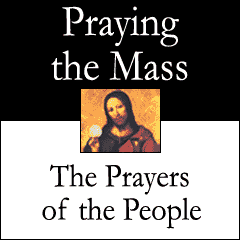Well, this should be interesting. I have received the following circular email from Rob Ward, Victorian State Director of the Australian Christian Lobby. He is informing us of the upcoming schedule for the public hearing of the Scrutiny of Acts & Regulations Committee into the proposed review of the exceptions in the Equal Opportunity Act here in Victoria, to be held in the Legislative Council Committee Room at Parliament House.
It is an impressive line up! (For the full list of groups making submissions to the hearing, see here.)
Dear David ,
Are you able to take a couple of hours to stand for religious freedom?
This coming Wednesday 5th August, the Scrutiny of Acts & Regulations Committee will be hearing from a number of faith leaders as they respond to the direct attack on religious freedom that is the SARC review of the exceptions in the Equal Opportunity Act. These long standing exceptions allow faith based groups to choose staff and volunteers who share their faith & ethos. It is proposed that they be removed.
I believe we need to fill/overfill the Legislative Committee room with people who like us, are deeply concerned with protecting religious freedom.
Below is a timetable for the Wednesday. If you can come along for all or part of the day, if your denomination/tradition has clerical garb, please wear it.
I must say that the room is small and we cannot guarantee you or anyone a spot. But even if you are turned away, if lots of leaders are turned away, we still make the point. Freedom matters to us!
10:10am Catholic Bishops of Victoria Bishop Christopher Prowse DD , Bishop of the Diocese of Sale
10:30am Catholic Social Services Denis Fitzgerald, Executive Director, Catholic Social Services Victoria.
10:45am Anglican Church of Australia The Most Reverend Dr Philip Freier, Archbishop of Melbourne, The Rev’d Dr Mark Durie,
11:10am Presbyterian Church Rev. David Palmer, Convener
11:30am Islamic Council of Victoria
11:50am Sikh Interfaith Council Gurdarshan Singh Gill, Chairperson
12:15pm B’nai B’rith Deborah Stone, Research Director
1:15pm Mt Evelyn Christian School Dr. Gerry Beimers (Administration Manager), Martin Hanscamp (Principal)
1:35pm Christian Schools Australia Stephen Doherty, CEO (National), Jeanette Woods, State Executive Officer
1:55pm Australian Christian Lobby Rob Ward, Victorian State Director, Mark Sneddon, Member State Council
2:20pm Catholic Education Office Bishop Timothy Costelloe, Chairman, Nancy Bicchieri, Deputy Director, Stephen Elder, DirectorIf you cannot come, could you encourage others to come. Of course prayer for all those standing for freedom is a must!
Regards,
Robert Ward
Victorian State Director
Mob: 0408 348 352
Office: (03) 9018 1782
Fax: (03) 9011 9731
PO Box 455, Flinders Lane 8009














